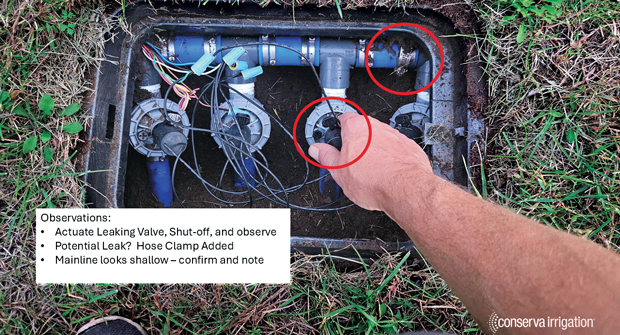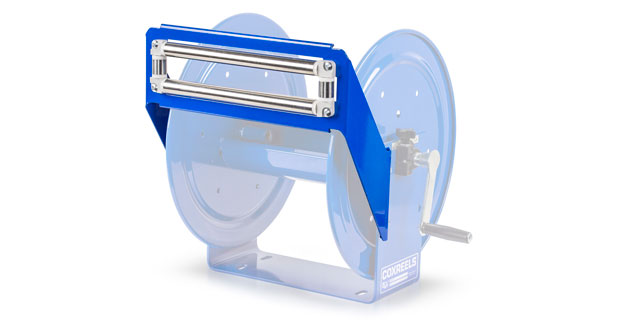The newest technology in communication and training is here, and it may not be a surprise to some. After all, it was right over our noses this whole time.
Conserva Irrigation, No. 85 on the 2024 LM150 list and founded by Russ Jundt and Tom Olson in 2010 with the goal of saving water in the irrigation business, is working through an exciting pilot program using augmented reality glasses — lenses that superimpose computer-generated texts, images and videos into the user’s field of view.
Jundt, president of Conserva, says the glasses come equipped with a variety of tools that allow technicians in the field to stream their point of view to a franchise business coach (FBC) or industry expert in real time. From there, the coach can work with the technician remotely, talking through the problem, circling or highlighting areas that need attention, overlaying relevant documents and images into the technician’s vision and more.
“Imagine having the knowledge and expertise of a 40-year veteran readily available behind the lens of AR glasses,” says Jundt. “This is the future of how Conserva will support its technicians throughout the U.S. The franchise business coach sees what the technician sees, communicates and directs, interfaces through voice and illustrative measures in the field of view of the technician and ultimately solves the problem.”
Jundt says Conserva prides itself on never being satisfied with the status quo, and AR glasses (which he now calls smart glasses as the technology and pilot program advances) push forward Conserva’s core values of innovation, responsibility and professionalism.
“Innovation, that’s our topic today — always being on the vanguard of new technology in a way that can improve efficiencies, can improve production and can improve the final product for the consumer,” Jundt says.
With smart glasses, technicians can also have their hands free to work through problems while receiving help, and time and money is saved by eliminating the need for experts to travel to worksites.
Another key feature is recording interactions through the glasses and using them to create, categorize and disperse homogeneous training videos throughout the many company locations.
“Many of us learn by seeing — learn by illustrative ways,” Jundt says. “Here’s a one-on-one scenario where this FBC is training that technician directly, but also at the same time recording the event, taking that, categorizing it and putting it into our repository of training videos on our learning management software system so others then learn from that exact scenario, and it cascades across the system.”
Jundt describes Conserva as a collection of ideas from various franchise owners and team members in its network, and the idea to use smart glasses came from a franchise owner, Troy Fey, who previously worked in the aerospace and defense industry and utilized remote support capabilities during the COVID-19 pandemic. Due to the lockdowns at the time, Fey needed a way to work collaboratively while being remote, ultimately bringing AR glasses to his previous industry and, eventually, Conserva.
Conserva’s smart glasses are planned to become an official program in February 2025 at the company’s annual meeting in Austin, Texas, where it will cascade to regional tech training in March and April.
Jundt says he’s sharing the enthusiasm many others in the company have expressed at the new technology, and he hopes it’ll be something that can trickle down and really impact the industry as a whole.
“We think that we’re going to continue to evolve and impact the entire industry by coming up with these creative ideas and group thinking, if you will, within the Conserva way and cascading the change across the U.S. or across the world.”


